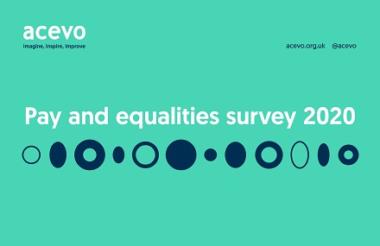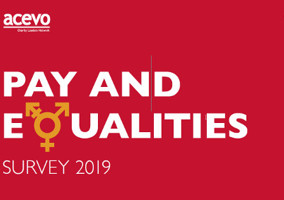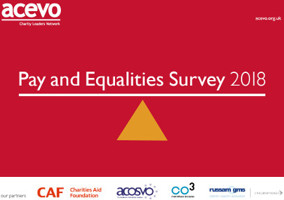Larger charities are more likely to have a male chief executive whereas smaller ones are more likely to have a female leader, contributing to a gender pay gap of 12.1%, according to research out today.
A total of 476 charity chief executives contributed to ACEVO’s Pay and Equalities 2020 report. Data was collected between Monday 9 March to Friday 3 April 2020 and covers England, Wales, Northern Ireland, and Scotland.
The survey has been produced for more than 15 years. The report says that during this period there has been progress on some governance and HR issues, but progress in other areas “has reached a standstill”.
It also finds that fewer than a quarter of charity chief executives feel their board is sufficiently diverse.
The median chief executive salary was £55,993. This represents the highest median salary since 2013 but is still below the median salary reported in the 2006/07 Pay Survey of £57,640.
It is also before adjusting for inflation and demonstrates that chief executive pay remains lower in real terms than it was over a decade ago.
Gender pay gap
Of those who responded, 43% were men, 56% were women, and 1% preferred to self-describe their gender.
However, there was a gender pay gap of 12.1% in favour of men in 2020, slightly less than the 13.8% gap reported in the 2018 survey.
Male chief executives are more likely to lead charities with an income of £2.5m or more, while female leaders are more prevalent in smaller charities.
Overall, 59% of women in the sample were leading charities under £1m, compared with less than half (47%) of male respondents.
Just over a quarter of women were chief executive at a medium sized charities (£1m-£5m), compared with 30% of men.
Some 15% of female respondents were a chief executive at larger charities (over £5m), compared with a quarter (24%) of male respondents.
The report also finds differences in the support available to men and women.
Male respondents were more likely than female ones to have an annual appraisal; 37% for men and 23% for women. Men were also more likely to receive feedback from their chair, at 73% of male chief executives compared to 62% of female chief executives.
23% of CEOs satisfied with the ethnic diversity of their boards
Elsewhere, the report finds that Black, Asian and minority ethnic groups continue to be underrepresented in chief executive roles.
It states that 94% of respondents were from white ethnic backgrounds, 2% from mixed/multiple backgrounds, 1% from Asian/Asian British backgrounds, 1% from Black/African/Caribbean/Black British backgrounds and 1% from other ethnic groups.
Just 23% of chief executives were satisfied with the ethnic diversity of their boards and 24% with the diversity of ability. Both measures showed a decline on 2018.
Across all measures, chief executives reported declining or static satisfaction with board diversity in 2020.
According to the report, this could be because chief executives have higher expectations as well as because of actual changes in the diversity present on their boards.
The report also finds 16% of respondents reported having an impairment, health condition or learning difference and 81% of respondents identified as heterosexual.
The survey does not capture whether sexual orientation is known within respondents’ professional lives, and “in many cases it may not therefore present a visible site for bias, either conscious or unconscious”.
Appraisal figures stagnant
Many respondents continued to report a lack of appraisal. In 2005, 34% said they did not have a formal appraisal, whereas in 2020 this figure was 32%.
The 2020 survey found that almost one in five, 18%, did not receive any feedback on their performance from their chair, trustees, colleagues or peers.
This year, for the first time, chief executives were asked if they agreed with the statement that the board prioritises their wellbeing. Only 54% of chief executives agreed that their wellbeing was prioritised by their board, and of these only 16% agreed strongly.
Vicky Browning, chief executive at ACEVO, said: “2020 has been a year of personal and professional challenges on a scale that many people have not experienced before. These challenges undoubtedly impact on the wellbeing of chief executives who need to know that trustees prioritise their responsibility as a manager.
“Many of the challenges found in this year’s Pay and Equalities Survey are not new, but faster progress needs to be made to tackle them. The response to lockdown from charities has been inspirational and it has also shown the speed at which change can happen if it is deemed to be essential.
“I hope that as we look to build back better, this also includes strengthening support and professional development, and building truly inclusive, representative cultures.”
Related articles











